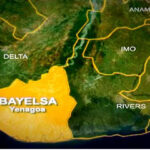
Environmentalists and stakeholders have cautioned the Federal Government not to allow the state government commence work on the proposed 275 kilometres Cross River superhighway project but withdraw the provisional approval for the project since the 4th Environmental Impact Assessment (EIA) did not meet expectations.
They said it was fraught with plagiarism, questionable additions and did not generally meet the required standard.
The Executive Director of Rainforest Resource Development Centre, Dr Odey Oyama, and other experts at an event in Calabar, to look at the conditional approval of the project, insisted that the Federal Government should withdraw its conditional approval for it.
Oyama expressed concern that there were several fraudulent claims and fundamental omissions in the 4th EIA attempt by the Cross River government, and insisted that the deficiencies should first be addressed in line with international best practices before formal and final approval.
He emphasized that state government must ensure payment of compensation for the confiscated lands.
The experts also called on Governor Ben Ayade to reveal where he would raise the estimated N800 billion to execute the project, bearing in mind that the state has been receiving near zero allocation from the Federal Government in recent times.
Governor Ayade, who received the conditional approval from the Ministry of Environment last week, had said, “I keep the sources of funding close to my chest. Nobody should bother himself about how I will fund the superhighway. The state will not bear the burden of the funds.”
Oyama said, “The tax payers of Cross River State and indeed every Nigerian has got the right to know how Gov Ayade intends to fund this controversial project. It is a public project, which we all want to get done once all the 20 EIA conditions have been met. It should not be shrouded in secrecy.”
The Country Director of Wildlife Conservative Society (WCS), Andrew Dunn, while calling for rejection said, “EIA and Biodiversity Action Plan were not based on sound scientific data and both contain a number of errors.”

 Join Daily Trust WhatsApp Community For Quick Access To News and Happenings Around You.
Join Daily Trust WhatsApp Community For Quick Access To News and Happenings Around You.


